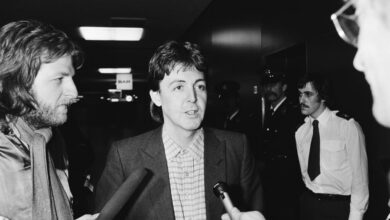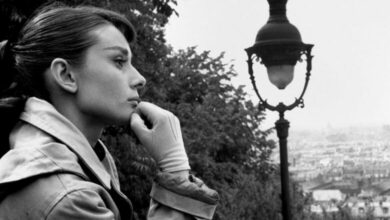The album that Paul McCartney produced for his brother

Paul McCartney wasn’t the only star in his family household. James McCartney was a musician of some repute in his native Liverpool, and some of his musical sparks were passed on to his two boys. Paul was the obvious contender, but Mike McCartney was also talented in his own way, even if his talents lent themselves more towards comedy than pop.
Mike formed The Scaffold, a vaudeville outfit perhaps best known for ‘Lily The Pink’, a jaunty song commonly heard in rugby halls and football matches. But there was nothing dirty or seedy about The Scaffold’s rendition of ‘Lily The Pink’, but a general sense of good-natured British fun.
By the turn of the 1970s, Mike was preparing himself for his second album, at a time when Paul was enjoying immense success with his second band, Wings. Together, the McCartney brothers pooled their ideas together for an album that combined Paul’s ear for melody with Mike’s penchant for barbed wit. And reader: McGear is brilliant.
Typically, Mike remembered the genesis of the album in an almost deadpan manner. “The Scaffold finished,” Mike recalled, “Grimms finished, so Our Kid says to me ‘Whatcha doing?’ Nothing. He says, ‘You’ve got six children!’ Now that I think about it, I only had three girls in 74′! He says, ‘Want to bring some money in for the three girls?’ I said, ‘sure.’ So, we started in Abbey Road, working on a great track called ‘Leave It’. On this album, we have a six-minute-long version on Disc 2. Had to change that for the radios. So, we started in Abbey Road, then we went to Strawberry Studios.”
Wings served as a backing band for the recordings, and the album introduced Scottish guitar player Jimmy McCulloch to the proceedings. McCulloch acquits himself nicely to the album, especially on ‘Sea Breezes’, the heavy rock makeover of a Roxy Music favourite. The album opens with a bellowing guitar lick, bringing a sense of theatre and dynamism to the work, that sounded strong on record, and might have sounded better onstage if the McCartneys had decided to tour with the album. Putting it crudely, the album is more ‘Mike McCartney and Wings’ than ‘Paul McCartney and Wings’.
But that’s not to say that the bassist’s influence isn’t notable, as he is credited with the music on every song. Putting the Irish lilt on ‘The Casket’, Paul was inspired to bring Chieftains mainstay, Paddy Moloney, on the track, as the uilleann pipes bring the song up. Lushly produced, the acoustic backdrop captures the singer in strangely reflective mode, breathing new life to the words of Roger McGough.
Mike was always prouder of his Irish roots than his older brother, and he went to record a shimmering version of ‘Liverpool Lou’, a Dominic Behan pub standard that cannily employed the gizmo device 10cc songwriters Kevin Godley and Lol Creme had patented. Invited onto the Late Late Show, Mike sang the tune with only the sparsest of instruments, gifting the island back one of her most celebrated melodies.
The McGear album is also notable for the synth-heavy ‘Givin’ Grease A Ride’, bolstered by a wash of chiming, backwards guitars and a pulsating keyboard hook. The band recorded Mike driving a car, although it was supplemented by the sound of a vehicle driving into a wall.
Elsewhere, Paul leads Wings into more experimental territories he would not have permitted on their records, which might explain why Denny Laine sounds so animated on ‘What Do We Really Know?’ Paul performs a collection of bass solos, each one more animated than the one that comes before it, and the general treatise of the album is one of good fun.
‘The Man Who Found God on the Moon’ is the album’s most whimsical number, but there’s plenty of comedy to be enjoyed throughout the record. Paul is clearly having a blast, as can be heard on many of his helium style backing vocals throughout the album. It might have pinpointed an area for Paul to pursue at other times in his career when he was losing the sense of his songwriting muse to produce an album for another artist, but it wasn’t an avenue he decided to take.
But he did leave us this oddly beautiful album that showcased his skilful arrangements, towering bass work and shrill, soulful harmony vocal styles. It was an album of energy, expertly reproduced by the band that rivalled The Beatles for songcraft and tight arrangements. Re-released in 2019, the album enjoyed a new life, and it happily matches Band On The Run for batty invention while simultaneously pointing the way for the out and out rock production style of Venus and Mars. It’s as much Paul’s work as it is Mike’s, and together the brothers created something fun, flavoursome and long-lasting.





